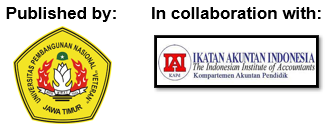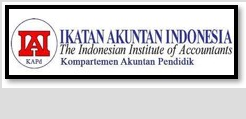The Revolution of Online Business Financial Performance : Before, During and After Pandemic
DOI:
https://doi.org/10.33005/jasf.v8i1.548Keywords:
Financial Performance, MSMEs, Online Business, PandemicAbstract
This study aims to investigate the financial performance of online businesses during the periods before, during, and after COVID-19. A qualitative descriptive analysis was conducted through in-depth interviews with online business practitioners in five cities/regencies in Indonesia. Data analysis was performed using selective coding patterns. The findings indicate that the financial performance of online business organizations experienced a significant improvement during COVID-19. This improvement was supported by several factors, including changes in consumer behavior, operational activities that were acknowledged to be more efficient, the quality of human resources within the organization, and organizational commitment to IT development. Online businesses must adapt quickly to environmental changes and the rapid advancement of IT. Business closures during COVID-19 were found to negatively impact financial performance. This study provides valuable insights into the financial conditions of online businesses during COVID-19, which contrast sharply with those of other business organizations, particularly during the pandemic. The findings offer lessons for business practitioners on managing operational activities affected by the pandemic and formulating anticipatory measures should similar events occur in the future. Policymakers can also consider implementing policies that enable business organizations to maintain their operations even during crises.Downloads
References
Agliardi, E., Alexopoulos, T., & Karvelas, K. (2023). The environmental pillar of ESG and financial performance: A portfolio analysis. Energy Economics, 120. https://doi.org/10.1016/j.eneco.2023.106598
Agoraki, M. E. K., Giaka, M., Konstantios, D., & Patsika, V. (2023). Firms’ sustainability, financial performance, and regulatory dynamics: Evidence from European firms. In Journal of International Money and Finance (Vol. 131). Elsevier Ltd. https://doi.org/10.1016/j.jimonfin.2022.102785
Anwar, M. N., & Daniel, E. (2016). Entrepreneurial marketing in online businesses: The case of ethnic minority entrepreneurs in the UK. Qualitative Market Research, 19(3), 310–338. https://doi.org/10.1108/QMR-04-2015-0029
Brahmana, R. K., Setiawan, D., & Trinugroho, I. (2023). The impact of government nonmarket policy on a firm’s financial performance: a lesson from COVID-19 pandemic lockdown’s policy. Asia-Pacific Journal of Business Administration, 15(2), 307–322. https://doi.org/10.1108/APJBA-05-2021-0204
Bytyçi, S., Shala, V., Ziberi, B., & Myftaraj, E. (2021). Transforming traditional business into online: The impact of COVID-19 pandemic on consumer behavior. Journal of Governance and Regulation, 10(2 Special issue), 300–308. https://doi.org/10.22495/JGRV10I2SIART10
Camilleri, M. A. (2022). E-commerce websites, consumer order fulfillment and after-sales service satisfaction: the customer is always right, even after the shopping cart check-out. Journal of Strategy and Management, 15(3), 377–396. https://doi.org/10.1108/JSMA-02-2021-0045
Carballo, J., Rodriguez Chatruc, M., Salas Santa, C., & Volpe Martincus, C. (2022). Online business platforms and international trade. Journal of International Economics, 137. https://doi.org/10.1016/j.jinteco.2022.103599
Chairaksa, N., & Pankham, S. (2023). Modern Entrepreneur for the Success of Online Businesses for Small and Medium Enterprise in Thailand. TEM Journal, 12(2), 956–966. https://doi.org/10.18421/TEM122- 42
Cumming, D., Johan, S., Khan, Z., & Meyer, M. (2023). E-Commerce Policy and International Business. In Management International Review (Vol. 63, Issue 1, pp. 3–25). Springer Science and Business Media Deutschland GmbH. https://doi.org/10.1007/s11575-022-00489-8
De Fano, D., Schena, R., & Russo, A. (2022). Empowering plastic recycling: Empirical investigation on the influence of social media on consumer behavior. Resources, Conservation and Recycling, 182. https://doi.org/10.1016/j.resconrec.2022.106269
Dmuchowski, P., Dmuchowski, W., Baczewska-Dąbrowska, A. H., & Gworek, B. (2023). Environmental, social, and governance (ESG) model; impacts and sustainable investment – Global trends and Poland’s perspective. Journal of Environmental Management, 329. https://doi.org/10.1016/j.jenvman.2022.117023
Doran, N. M., Bădîrcea, R. M., & Manta, A. G. (2022). Digitization and Financial Performance of Banking Sectors Facing COVID-19 Challenges in Central and Eastern European Countries. Electronics (Switzerland), 11(21). https://doi.org/10.3390/electronics11213483
Francis Sudhakar, K., & Syed, H. (2019). Online shopping and its impact on customer satisfaction considering the role of respondents trust and gender influence. International Journal of Recent Technology and Engineering, 8(2 Special Issue 4), 314–319. https://doi.org/10.35940/ijrte.B1059.0782S419
Gavrilakis, N., & Floros, C. (2023). ESG performance, herding behavior and stock market returns: evidence from Europe. Operational Research, 23(1). https://doi.org/10.1007/s12351-023-00745-1
Hassan, M. K., Houston, R., Karim, M. S., & Sabit, A. (2023). CEO duality and firm performance during the 2020 coronavirus outbreak. Journal of Economi Asymmetries, 27. https://doi.org/10.1016/j.jeca. 2022.e00278
Hu, S., & Zhang, Y. (2021). COVID-19 pandemic and firm performance: Cross-country evidence. International Review of Economics and Finance, 74, 365–372. https://doi.org/10.1016/j.iref.2021.03.016
Jin, L., Choi, J. H., Kim, S., & Cho, K. (2022). Slack Resources, Corporate Performance, and COVID-19 Pandemic: Evidence from China. International Journal of Environmental Research and Public Health, 19(21). https://doi.org/10.3390/ijerph192114354
Kanani, R., & Glavee-Geo, R. (2021). Breaking the uncertainty barrier in social commerce: The relevance of seller and customer-based signals. Electronic Commerce Research and Applications, 4 https://doi.org/10.1016/j.elerap.2021.101059
Khoa, B. T., & Huynh, T. T. (2022). How do customer anxiety levels impact relationship marketing in electronic commerce? Cogent Business and Management, 9(1). https://doi.org/10.1080/23311975.2022.2136928
Kurniawan, Maulana, A., & Iskandar, Y. (2023). The Effect of Technology Adaptation and Government Financial Support on Sustainable Performance of MSMEs during the COVID-19 Pandemic. Cogent Business and Management, 10(1). https://doi.org/10.1080/23311975.2023.2177400
Labadze, L., & Sraieb, M. M. (2023). Impact of Anti-Pandemic Policy Stringency on Firms’ Profitability during COVID-19. Sustainability (Switzerland), 15(3). https://doi.org/10.3390/su15031940
Liu, H., & Zhao, W. (2023). The role of political connections in bad times: Evidence from the COVID-19 pandemic. Economics Letters, 224. https://doi.org/10.1016/j.econlet.2023.110999
Lu, J., & Khan, S. (2023). Are sustainable firms more profitable during COVID-19? Recent global evidence of firms in developed and emerging economies. Asian Review of Accounting, 31(1), 57–85. https://doi.org/10.1108/ARA-04-2022-0102
Matuszelański, K., & Kopczewska, K. (2022). Customer Churn in Retail E-Commerce Business: Spatial and Machine Learning Approach. Journal of Theoretical and Applied Electronic Commerce Research, 17(1), 165–198. https://doi.org/10.3390/jtaer17010009
Miah, M. R., Hossain, A., Shikder, R., Saha, T., & Neger, M. (2022). Evaluating the impact of social media on online shopping behavior during COVID-19 pandemic: A Bangladeshi consumers’ perspectives. Heliyon, 8(9). https://doi.org/10.1016/j.heliyon. 2022.e10600
Morsi, S. (2023). Evaluation of E-service Quality and its impact on Customer Satisfactions for Mobile Commerce Applications in Egypt. Journal of System and Management Sciences, 13(4), 370–388. https://doi.org/10.33168/JSMS.2023.0422
Nayak, P., & Rroy, A. D. (2022). Perception of Customers Towards Ethical Issues in Online Shopping. International Management Review (Vol. 18).
Rahim, H. L., Sarifah Radiah Shariff, S., Ngah, R., & Jalil, S. A. (2022). The Resilience of SMEs in Fighting COVID-19 through Online Business Acceleration. International Journal of Applied Economics, Finance and Accounting, 13(1), 10–19. https://doi.org/10.33094/ijaefa.v13i1.570
Sergi, B. S., Ključnikov, A., Popkova, E. G., Bogoviz, A. V., & Lobova, S. V. (2022). Creative abilities and digital competencies to transitioning to Business 4.0. Journal of Business Research, 153, 401–411. https://doi.org/10.1016/j.jbusres.2022.08.026
Singh, J. P., Irani, S., Rana, N. P., Dwivedi, Y. K., Saumya, S., & Kumar Roy, P. (2017). Predicting the “helpfulness” of online consumer reviews. Journal of Business Research, 70, 346–355. https://doi.org/10.1016/j.jbusres.2016.08.008
Soumyadeb Chowdhury, P. B. P. K. D. S. J.-E. A. A. (2022). AI-employee collaboration and business performance: Integrating knowledge-based view, socio-technical systems and organisational socialisation framework. Journal of Business Research, 31–49.
Stöcker, B., Baier, D., & Brand, B. M. (2021). New insights in online fashion retail returns from a customers’ perspective and their dynamics. Journal of Business Economics, 91(8), 1149–1187. https://doi.org/10.1007/s11573-021-01032-1
Teti, E., Dallocchio, M., & L’Erario, G. (2023). The impact of ESG tilting on the performance of stock portfolios in times of crisis. Finance Research Letters, 52. https://doi.org/10.1016/j.frl.2022.103522
UNCTAD. (2019). Digital economy report.
Zhang, T., Zhang, Z., & Yang, J. (2020). When Does Corporate Social Responsibility Backfire in Acquisitions? Signal Incongruence and Acquirer Returns. Journal of Business Ethics, 45–58. https://doi.org/10.1007/s10551-020-04583-5
Zhen, C., Samikon, S. A., Kharuddin, A. F., Nuvriasari, A., & Pratama, H. (2022). The Impact of Online Business Marketing on Small and Medium-Sized Enterprise Performance (SMEs). Quality - Access to Success, 23(191), 21–27. https://doi.org/10.47750/QAS/23.191.03














